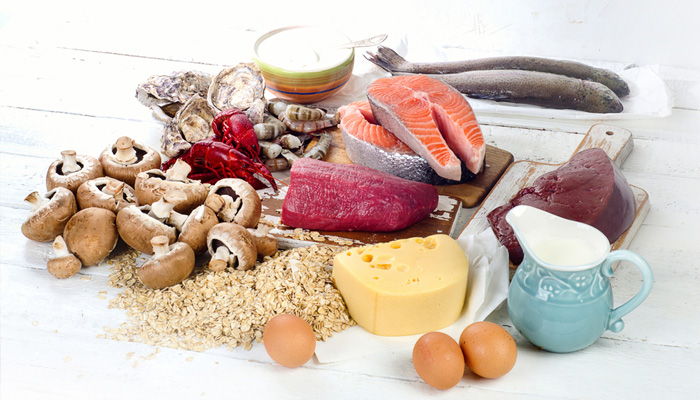Shutterstock
Vitamin B12 is an essential nutrient for human health and a deficiency can lead to a number of serious health problems. Here’s what you need to know about B12 and how to get it into your daily diet.

Vitamin B12 is a nutrient that belongs to a class of chemicals called Cobalamin. B vitamins are a class of water-soluble vitamins that are essential for cell metabolism. B12 is metabolized through the liver, and its elimination half-life is approximately six days.
Vitamin B12 is essential to the creation of blood cells and the operation of the nervous system in the body. B12 also helps the body make DNA.
Not getting enough vitamin B12 in your diet can lead to some serious health problems.
One of the most prevalent health conditions associated with vitamin B12 deficiency is anemia, a reduction in the amount of healthy red blood cells contained in the body.
Vitamin B12 also plays an important role in the nervous system, and studies have associated it with helping to prevent the loss of neurons, which can impact brain health in memory function.
It is also necessary to maintain adequate levels of B12 during pregnancy. A deficiency in B12 during pregnancy may lead to birth defects.
Recent studies found that people with a vitamin B12 deficiency also have lower bone density. Therefore, proper B12 levels are necessary to prevent osteoporosis, a condition which results in low bone density, making them fragile. This is especially critical for women.
B12 also helps prevent certain types of eye disease, including macular degeneration.
Common symptoms of B12 deficiency include fatigue, numbness, breathlessness, poor balance or memory impairment.
The three most common ways of getting the necessary amount of B12 in your body is through diet, supplements or B12 injections.
Vitamin B12 is found naturally in meats and animal products, such as dairy, but it is also added as a supplement to certain foods.
You can also take B12 supplements in pill form.
For those who are the most deficient in B12, a medical practitioner may determine that it is necessary for that individual to receive injections to increase B12 in their system more rapidly and to gain a higher level in their bloodstream.
The best sources for vitamin B12 in food is found in meat and dairy products. The highest sources are: beef, liver, and clams, followed by fish, poultry and other meats, eggs, milk and other dairy products.
Some foods are fortified with vitamin B12, so you’ll need to check the label. Most commonly these are breakfast foods.
Adults and teens between the ages of 14-18 need 2.4 mcg (micrograms) per day. Children 9-13 need 1.8 mcg, children 4-8 require 1.2 mcg, children 1-3 need 0.9 mcg, infants 7-12 months require 0.5 mcg, and infants 6 months and under need 0.4 mcg daily.